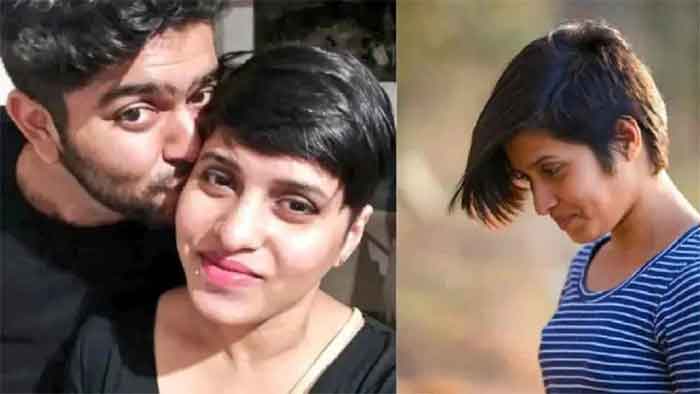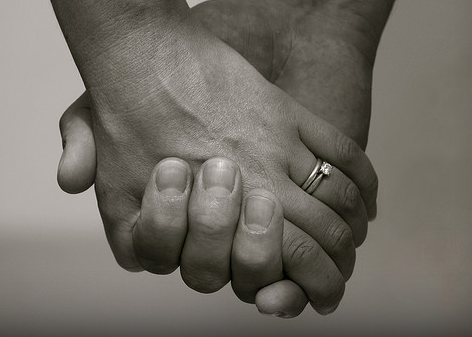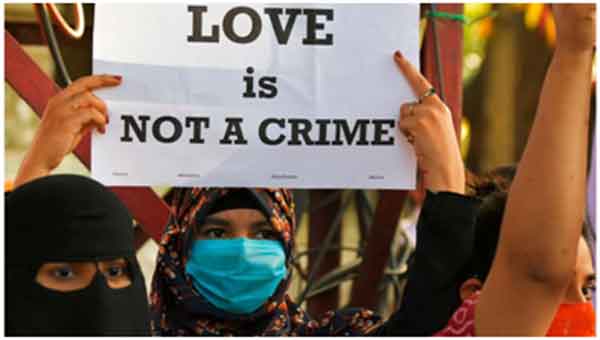
The recently promulgated Uttar Pradesh Prohibition of Unlawful Religious Conversions Ordinance, 2020 [‘the Ordinance’], unofficially referred to as the ‘love jihad law’ by much of the news media, has been the subject of considerable discussion and analysis ever since it was enacted in November 2020.
Its constitutionality was challenged by a public interest litigation filed before the High Court of Allahabad in December 2020. The UP Government filed its counter affidavit in response to these petitions before the High Court on January 7, 2021.
An analysis of the contents of this 35-page affidavit give a glimpse into the shockingly regressive, antediluvian and anti-constitutional worldview of the UP Government on matters of individual liberties, religious conversion, and personal agency of its citizens.
Community interest trumps individual interest
Paragraph 13 of the affidavit states that “the community interest will always prevail over the individual interest. The societal interest has been held… to be a public interest and… public interest will always be placed at a higher pedestal than the individual interest.”
Paragraph 49 repeats this sentiment by stating:
“[C]ommunity interest is on a much higher pedestal than agreement of two adults individual to enter into a wedlock. This community interest is synonymous to social interest which is equivalent to public interest. Under the circumstances thinking of family or community is not the foundation but interest of the community and interest to keep the family safe and as a consequence the entire social fabric in balanced position is the objective for which the consent of two adults (sic) individuals has to be regulated.”
Not only is such express designation of individual rights as subservient to societal or community interests (which are never expressly defined anywhere in the affidavit) completely anathema to Constitutional jurisprudence that has developed through the last seven decades about the primacy of fundamental rights of the individual, but is also a naked display of the reactionary mindset of the current UP Government.
This is an admission that the objective of the ordinance is to render the personal autonomy of two individuals from different religions to marry each other as subordinate to the preservation of some larger social fabric which, it is indicated, can be done by regulating the choice of these individuals so that they don’t marry outside the boundaries set for them by their respective communities. In such a conceptualization, social interest and public interest is harmed by inter-religious marriages.
No wonder, then, that the affidavit also questions that the recent judgment of the Allahabad High Court in the case of Salamat Ansari and 3 others vs. State of UP and 3 others (Crim Misc. W.P. No. 1136/2020 decided on 11.11.2020), averring that it “needs reconsideration” and “cannot considered to be good in law” “as it has not dealt with the question relating to inter-fundamental right and intra-fundamental rights as it has also skipped the attention of the Hon’ble Division Bench of the High Court as to what will be the scope of liberty of an individual qua the social interest (sic)”. It is not clear what is meant by ‘inter-fundamental right’ and ‘intra-fundamental rights’; the motivation behind the UP Government’s disagreement is, though, since the judgment in question had reiterated that the right to live with a person of his/her choice irrespective of religion professed by them, is intrinsic to the right to life and personal liberty, and that interference in a personal relationship would constitute a serious encroachment into the right to freedom of choice of the two individuals.
Bizarre perspective on religious conversion
The UP Government’s take on religious conversion is laid out in barely comprehensible manner in paragraph 12 of the affidavit as follows:
“[W]herever the personal law comes into play and the individual exercises the right of personal liberty but the personal law of the community to which he individual wants to enter upon by changing his (gender neutral) religion or religious practice causes issue of complexities as the dignity of the individual, gets compromised and the individual is not assured the equality of status. Thus what happens is that the individual while exercising the right of personal liberty loses his dignity and equality of status to the religion which he does not adopt but is trying to take benefit of some-sort by being in the society of the member of the other religion. In such situation the individual even though has not changed his religion but has only exercised the right of liberty/choice to be in association with member of other religion but is deprived of the benefits as the benefit of the new religion will not be available unless and until a conversion takes place. This conversion will be against the choice of the individual who wants to remain in the society with the member of other religion but does not want to leave his faith. Thus there is a conflict of interest which is an issue addressed by means of the instant legislation wherein the inter fundamental right of the individual are safeguarded”.
What I could glean from this incoherent word-soup is that as per the UP Government, all individuals that convert to another religion lose their dignity and are not accorded equal status by their newly adopted religious community. Individuals that convert to another religion to benefit from its personal laws could never wish to leave their original faith, and therefore their exercise of personal liberty to convert will, counter-intuitively, be against their choice.
Such questionable logic is used to prop up the belief that religious communities are closed groups, and that no one can truly want to convert to another religion but only be moved to do so out of vested interests.
The employment of feeble logic is exacerbated in Paragraphs 23 and 24 of the affidavit, in which the UP Government gives two examples each of what is not and is a forceful conversion, respectively. For the former, the illustrations cited are of non-Christian students reading the Bible at a convent school that they attend, and a Christian family being restricted from consuming wine and non-vegetarian food within the premises as per the tenancy rules of some rented accommodation. Equating either of these situations with religious conversion of any sort is unreasonable at best and downright dishonest at worst. No reasonable person would look at either of the situations and ponder if religious conversion, let alone a forcible one, is occurring.
For the latter, the illustrations cited are of the entire Scheduled Caste community residing in a basti being allured by missionaries on the promise of better treatment and free nursing education followed by employment, and of a Hindu man or woman converting to Islam in order to enter into a valid marriage with a Muslim that they’ve chosen to marry. The first example culminates with the conclusion that “the community where (after conversion) they are being received still looks doing (sic) upon them as a convert and there is no equality of status let alone freedom of conscience”. The second example ends with conceding that “there is exercise of freedom of choice but there is loss of dignity and the conversion is not exercised as a choice but on account of compulsion due to personal law intervening.”
Where does one begin with these? Besides the obvious issue that these two examples play off tired prejudiced tropes of Christian missionaries converting hapless Scheduled Caste members residing in a basti, and Muslim persons getting their Hindu spouses to convert to Islam as a precondition to marriage; it is also rather worrying to note that they are based on the loaded assumptions that religious communities look down upon recent converts, and that meaningful choice cannot be exercised when converting for marriage. A worldview based on such assumptions will deny individuals their agency and autonomy over their personal decisions, view an individual’s religious identity as fixed and static, and cannot fathom religious conversion being driven by free consent.
“Fear psychosis in the community at large”
Paragraph 14 lays out the rationale of the ordinance thus:
“[W]hen there is a fear psychosis spread in the community at large and the Community itself is endangered and succumbs to the pressure resulting in forceful conversion, under the said circumstances it becomes necessary that the interest of the community as a whole requires protection and no microanalysis of individual interest can be looked into.”
The affidavit is sprinkled with liberal usage of the terms ‘fear psychosis’ and ‘terror’ to characterize the specter of forceful conversion that is supposedly looming over UP, the correction of which justifies undermining individual interests. The only problem is that nowhere are the particulars of this crisis actually spelt out.
To be clear, forceful religious conversions are indisputably a problem, and must be dealt with strongly. However, in a state racked by escalating rates of crimes against women, increasing poverty, rising unemployment, some of the worst air pollution anywhere in the country, and poor primary healthcare infrastructure coverage, among several other predicaments, it is highly doubtful that religious conversions, the scale of which is never outlined anywhere and which doesn’t seem to materially affect anyone other than the converts, registers anywhere on the list of priorities for it residents, let alone collectively terrorizes them.
Not a ‘love jihad’ law
Paragraph 43 states that since the term ‘love jihad’ has not been employed anywhere in the ordinance, “it cannot be said that the ordinance is promulgated in the name of “love jihad.” While it is indeed true that the ordinance does not contain the term ‘love jihad’ in any of its provisions, public statements by the UP Chief Minister Adityanath promising a law to curb ‘love jihad’ makes the intention behind promulgating the ordinance amply clear.
Curiously, to defend the ordinance as a much-needed fix to the menace of forceful religious conversion, the affidavit refers to India’s international law obligations, and cites Article 18(2) of the International Covenant on Civil and Political Rights, and Article 1(2) of the Declaration of the UN General Assembly Resolution in 1981 in Paragraphs 19 and 20, respectively. Both of these provisions specifically deal with coercion which would impair an individual’s freedom to have or adopt a religion on behalf of their choice. However, throughout the affidavit, the UP Government couches the issue as one of conflict between individual and social interests, and how the latter must reign supreme, thereby undermining an individual’s freedom to adopt a religion. This is contrary to the contents of these international treaty commitments cited.
“Unfathomable how the ordinance disempowers an individual”
Article 51 of the affidavit brushes aside the concerns raised in the petition by stating that “[i]t is unfathomable as to how the provision of the ordinance energize the community groups and reinforce the social asymmetries to further dis-empower (sic) an individual.”
Yet, data from last month shows that in one month since the promulgation of the ordinance, the UP Police made 51 arrests in 14 cases, 13 of which involve a Hindu victim and a Muslim purported offender. In 12 of these cases, the complainant was not even the woman herself, and in two, there was intervention from Hindu right-wing activists. In eight of these cases, the couple were either friends or in a ‘relationship’, while one couple claimed to be married. One of these arrestees is a Muslim teenager whose crime was walking home from a birthday party with a Dalit girl who was his former classmate.
Several more such instances of rampant misuse of the ordinance are bound to take place in the future, many more Muslim men will be arrested on flimsy charges (the offences under the ordinance are cognizable and non-bailable, with the burden of proof placed on the accused to show their innocence), and inter-religious marriages, especially those between Muslim men and Hindu women, shall become further stigmatized (the recent judgment of the Allahabad High Court that provides greater privacy to people from different religions marrying under the Special Marriage Act provides scant relief). Eventually, the courts will adjudicate on the constitutionality of the ordinance.
This ordinance, though, is merely the latest symptom of the malady of illiberalism and ultraconservatism that has struck UP’s body politic, the chilling vision of which is manifest in this affidavit.
Vineet Bhalla is a Delhi-based lawyer.
IF YOU LIKED THE ARTICLE SUPPORT PEOPLE’S JOURNALISM













































